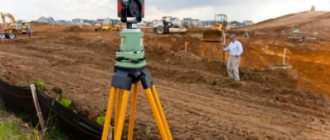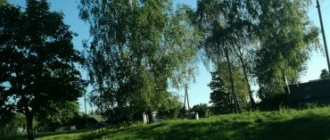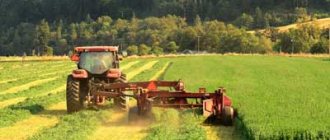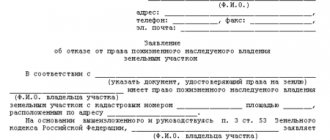How you can register public land in SNT as your property is worth knowing for those who have the right to property classified as common in a dacha partnership. When the issue concerns real estate, you need to approach its solution with certain knowledge. The process aimed at registering public lands located in dacha partnerships as personal property has some nuances that need to be focused on.
Why do this?
If you are familiar with the general plan of the locality or the rules established in the field of land use or development, this may clarify the picture.
In particular, this type of documentation is currently not accepted in all regions, that is, you may not find it in your region. However, keep in mind that the purposes of using the land located near the non-profit gardening partnership established by design decisions are its intended purpose, which differs from the purpose of implementing a gardening enterprise. Or when construction companies acting as large developers are interested in land plots, there is a high probability that gardening lands will be seized en masse, and plots will also be purchased for very small sums. It should also be noted that anyone who aims to privatize a plot of land located in horticultural, gardening, dacha partnerships that are non-commercial in nature can take advantage of the fact that the plots do not have clearly established boundaries and increase the plot allotted to him, the size of which should be equal to 6 acres. In particular, its size can be increased due to the fact that the area of the plot located next to yours is reduced; in addition, this procedure can affect the width of the roadway, areas designated for turning around, places intended for waste collection, and other. It is worth noting that the solution to the issue under consideration can be carried out in accordance with the laws. To do this, it will be necessary to register land that is in common use for cadastral purposes, while the land is displayed with clearly defined boundaries. Some people think about whether it is possible to carry out this procedure independently, to which it should be said that this can only be done with the participation of specialists, which is associated with the need to carry out geodetic work and form the allotment according to how it is spelled out in the general plan or in the plan, according to which organizes and develops the land. It is important that there are no controversial situations that relate to the boundaries of land plots located in common use. This is secured by an act in which the established boundaries are agreed upon, signed by everyone who has rights to adjacent lands.
When is the procedure for garden land with a house impossible?
It is prohibited to privatize:
- plots withdrawn from circulation;
- protected areas (reserves, national parks);
- public facilities (roads, city parks, beach areas, etc.);
- parts of the forest and water resources of Russia.
An adult citizen of the Russian Federation can privatize a land plot for free only once in his life. If he tries to privatize again, he will be refused.
Paperwork
As the legislation states in the law adopted at the federal level in 2001 under number 137, in the case when the land plot was transferred to the ownership of gardening, truck farming or a non-profit dacha association of residents before the end of October 2001, then the land is provided on the right of ownership to the members of the said association free of charge. In this case, the important point is that the purpose of using the site, which is provided for general use, is to carry out horticultural, gardening or summer cottage work.
The issue regarding the acquisition of such a plot of property by the considered association is resolved by holding a meeting at which all members of the partnership must be present. Next, an application is submitted to the municipal authorities, which is done by the person who is vested with chairmanship functions. However, please note that some documents will need to be attached to this application. In particular, a diagram that indicates the location of land on a plan that has a cadastral purpose. However, in the case where there is an approved plan, in accordance with which the procedure for surveying the territory where the plot of land we are interested in is located, then it will not be necessary to submit a diagram. The same rule applies to situations where there is a project according to which the territory of the partnership is organized and developed, or when the location of a given plot of land is described in detail. This description must be displayed in the state real estate cadastre.
In addition, the submission of an extract is required, which is made from the decision adopted at the general meeting of participants in the partnership of gardeners, summer residents or members of a non-profit dacha association. The decision must concern the acquisition of rights relating to a piece of land that is for common use. Documents of a constituent nature are required. That is, through such documents a partnership must be formed.
This is interesting: How to register outbuildings on an individual housing construction site
These documents are submitted to the local government body, which, after receiving them, reviews them. The period for this is set at two weeks. At the end of this period, the municipality makes a decision, which may concern the provision of a land plot into the ownership of citizens or contain a reasoned refusal. After receiving this decision, the person who is vested with presiding functions, or another authorized person, must contact the body involved in state registration of property rights regarding the property. The appeal occurs by submitting an appropriate application. To submit it, you will need to pay a state fee, the amount of which is 22 thousand rubles.
The legislator has clearly defined that the re-registration of the right of perpetual use of a land plot by members of a dacha or gardening partnership is not limited by time limits. Please also note that controversial situations often arise in court regarding how many members should be included in the association. As an example, we can consider a situation where members of a partnership hired a team to carry out work on asphalting a road surface; upon completion of the work, these persons filed a lawsuit with a request to secure for each of them the right of shared ownership of the specified object. However, in this case, the judge issued a reasoned refusal. In this case, it is necessary to pay attention to the fact that the law specifies the creation of a new thing, and not the use of an existing one. In the situation considered, the road already existed, and the members of the partnership only paved the asphalt. The court pointed out that in the concluded agreement between the summer residents and the construction company, the latter’s responsibilities include laying asphalt, and not creating a road.
Reasons for refusals
Can privatization of a land plot in SNT be refused? Of course, such cases occur, and they are by no means uncommon.
Let's start by considering indirect reasons for refusal of privatization :
- The partnership did not provide the SNT master plan.
- The land plot has already been privatized by one of the members of the gardening partnership.
- The territory or part of it is located on an adjacent plot, which was previously privatized by another owner.
- Land belongs to shared ownership and cannot be re-registered for one person.
- The plot was transferred to another land user.
These reasons are less common than the main ones, and nevertheless, they can become grounds for refusal of privatization. If the refusal is not justified or there are doubts about its legality, the applicant can file a lawsuit.
Main reasons for refusal:
- The site has been withdrawn from circulation and cannot be subject to privatization by citizens.
- The land is used for state and municipal needs (site for laying electricity lines, drainage, heating networks).
- The state imposes a ban on land privatization.
It is almost impossible to appeal the above reasons. The only solution to the current situation is to conclude a lease agreement for another plot of land within the SNT. Then you can re-register it as your property. Of course, not forgetting about the deadlines for free privatization - for garden plots in SNT the deadline is March 1, 2022.
Thus, the privatization of land in SNT using a membership book can be collective or individual. Those who received land before 2001 can count on a simplified procedure under the “dacha amnesty”. For all others, an administrative procedure is provided. The period for re-registration of land is from 10 days for a simplified procedure to 3-4 months for the main procedure. The cost is calculated based on the state duty, costs of certificates and cadastral work.
If you have any questions and need the help of a lawyer, please contact us via chat, using the feedback form or by phone.
Will lawyers tell you how to privatize land in SNT, what to collect and where to go? Competent support will save you from problems when registering a site. Attention!
- Due to frequent changes in legislation, information sometimes becomes outdated faster than we can update it on the website.
- All cases are very individual and depend on many factors. Basic information does not guarantee a solution to your specific problems.
That's why FREE expert consultants work for you around the clock!
- via the form (below), or via online chat
- Call the hotline:
- Moscow and the Region
- St. Petersburg and region
- FREE for a lawyer!
By submitting data you agree to the Consent to PD Processing, PD Processing Policy and User Agreement.
Anonymously
Information about you will not be disclosed
Fast
Fill out the form and a lawyer will contact you within 5 minutes
Tell your friends
Rate ( 1 ratings, average: 5.00 out of 5)
Author of the article
Maxim Privalov
Lawyer. 2 years of experience. I specialize in civil disputes in the field of housing and family law.
Author's rating
Articles written
610
Re-registration of a public area of SNT after January 1, 2021
General purpose land plots are land plots that are property of general use, provided for by the approved documentation on the planning of the territory and intended for general use by the legal holders of land plots located within the boundaries of the territory where citizens conduct gardening or vegetable gardening for their own needs, and (or) intended to accommodate another common use property.
If a public land plot was previously registered as the property of a legal entity, then after January 1, 2021, the ownership of the land plot can be changed by registering it as the property of the owners of the plots located on the territory of the partnership.
The procedure for registering ownership of public land in SNT
In addition, the submission of an extract is required, which is made from the decision adopted at the general meeting of participants in the partnership of gardeners, summer residents or members of a non-profit dacha association. The decision must concern the acquisition of rights relating to a piece of land that is for common use. Documents of a constituent nature are required. That is, through such documents a partnership must be formed.
Important! Each partnership on whose territory gardening activities are carried out must have title documents for common property. An act issued by municipal authorities, which confirms the fact of transfer of public land into ownership, can be considered as such a document. It may also be an act establishing the rule that land is provided to citizens on the basis of the right of perpetual use.
Registration of public land in SNT according to the new law
Such information was entered on the basis of a resolution on the allocation of land to a gardening partnership, a certificate of ownership (state acts) or a court decision on the provision of such land. In most cases, land certificates indicated the entire area under SNT allocated for collective gardening, without separately indicating the area of land common use. Also, the Acts contained diagrams of the plots provided.
However, he retains the right to use infrastructure facilities (electricity, roads, water supply, and so on). To exercise this right, this person must write an application; he will also have to pay special contributions every month.
Why is it necessary to privatize the site?
Until the moment of privatization, all garden plots belong to the municipalities of the districts on whose territory they are located. Citizens use them on a rental basis. After the privatization procedure, the tenant acquires ownership rights to the land.
If this procedure is not carried out in time, the owner may encounter the following problems:
- The lease agreement may be terminated, and the owner of the land will be left without it.
- The area of your property may decrease in favor of more efficient neighbors.
- Deciding to take ownership after the lease has expired can add to the challenges.
Therefore, timely privatization is necessary to avoid losses and problems.
New law on gardening from January 1, 2021
Previously, plots with various permitted uses were registered. In accordance with the new law, plots with permitted use “for gardening”, “for gardening”, “dacha land plot”, “for dacha farming”, “for dacha construction” are considered garden land plots .
To do this, you need to contact your local government authority. Taking with you a diagram of the location of the land plot on the cadastral plan of the territory and the minutes of the general meeting of members of the non-profit organization. If the territory surveying project has been approved, then a layout diagram is not needed!
Features of the new law on gardening and vegetable farming partnerships - 2021
- chairman representing the sole executive body,
- the board, which is a permanent collegial executive body with a maximum number of at least 3 people, but no more than 5% of the number of members of the partnership, which not only creates a certain convenience in the “controllability” of the board itself by the members of the partnership, but also reduces the size of the membership contributions for the maintenance of a board with a reduced number of members,
- audit commission (auditor), accountable to the general meeting of members of the partnership.
- general purpose land plots — land plots that are common property:
- such areas are provided for by the approved territory planning documentation,
- such plots are intended for general use by the right holders of land plots located within the boundaries of the territory where citizens conduct gardening or vegetable gardening for their own needs,
- such areas may be intended to accommodate other common property;
- contributions - funds contributed by citizens who have the right to participate in the partnership (members of the partnership) to the current account of the partnership for the purposes and in the manner determined by this Federal Law and the charter of the partnership;
- The territory where citizens conduct gardening or vegetable gardening for their own needs (hereinafter referred to as the territory of gardening or vegetable gardening) is a territory whose boundaries are determined by approved documentation on the planning of the territory.
Legislation
The main law regulating land legal relations is the Land Code of the Russian Federation. The procedure for simplified land privatization, which has been in force in Russia since 2006, is regulated by Federal Law No. 93 “On the dacha amnesty.” After the adoption of this regulatory act, the process of registering ownership of gardens became much easier and faster. Currently, permission for privatization from the local administration is not required. The documents, along with the application, are immediately submitted to Rosreestr, and after 10-14 days, ownership passes to the applicants (provided that everything is in order with the cadastral papers).
Registration and use of public lands
If the building has passed state registration and ownership has been registered, the owner can perform any legal actions with it: sell it, donate it, leave it as an inheritance. In this situation, the land under the structure will pass to the new owner of the structure. However, due to the fact that it is impossible to register such an allotment as property, only the transfer of lease rights will occur.
This is interesting: How to register two houses on one plot of land
Hello! For several years now we have been trying to privatize a plot in St. But due to the fact that we do not have geodesy of public lands, as we are told, privatization is not being done. We only have a membership book in our hands and that’s it. What should we do next? Where to go? The site needs to be privatized.
Step-by-step plan for cadastral registration of a SNT house
So, the progress of work for registering a house on the SNT site when contacting the cadastral company SSG is as follows:
- Collection of initial information:
- passport data, SNILS of the owner of the plot;
- cadastral number of the plot (from the certificate of ownership or extract from the Unified State Register of Real Estate).
- Conclusion of a contract and payment of 50% of the cost for the first stage of work:
- geodetic survey of the house to assign coordinates;
- measuring work of house premises in SNT.
- Production of floor plans and coordination with the customer.
- Drawing up a declaration about the SNT house and signing by the customer.
- Preparation of a technical plan and transfer to the customer.
- Payment of the remaining cost under the contract.
- Payment of the state fee for registering the right to the object in the amount of 350 rubles.
- Submission by the owner of a CD with a technical plan and state duty to the MFC. If necessary: Correction of shortcomings in case of suspension in the cadastral registration of the house.
- Obtaining an extract from the Unified State Register of Real Estate (USRN).
Extract from the Unified State Register of Real Estate
Law on SNT from 2021: latest news for summer residents
“What is a garden plot according to the new law 217-FZ on gardening partnerships? If I have a garden plot, can I build an individual housing construction project on it? Do I need to obtain a building permit from the local administration for this?” - Boris from the Leningrad region asks.
If an association of gardeners and gardeners decides to carry out entrepreneurial activities, then transforming it into a TSN or HOA or bringing the charter into compliance with the legislation on agricultural cooperation is mandatory. This is done the first time changes are made to the Charter or information contained in the Unified State Register of Legal Entities. According to the law, such activities are not related to gardening.
Use of public land in SNT
The right to choose the privatization option belongs to the members of the SNT. If they choose to register common ownership, then joint and shared ownership are allowed. In the first case, one application for privatization is submitted, signed by all members of the SNT. In the second case, it is submitted by each citizen indicating his share. The minutes of the meeting of the members of the partnership must be attached to the application.
Citizens have the right to contact members of the SNT board with a request to allocate land for temporary use. In his application, the citizen must indicate the purposes of use, the period for which the land will be needed to implement the assigned tasks (no more than a month). Typically, the SNT charter contains a requirement for prior notification of members of the partnership of their desire to use the site at least two weeks to a month in advance.
Legislative regulation
The procedure for privatization of garden lands is regulated by the following laws:
- Federal Law No. 101 “On the turnover of agricultural land”;
- Federal Law No. 137 “On the entry into force of the Land Code of the Russian Federation”;
- Federal Law No. 93 “Dacha Amnesty”;
- Land Code.
Law No. 137 regulates the terms of free privatization for certain types of plots and its legal features, Law No. 93 introduces a number of simplifications in the procedure for registering ownership rights to garden and dacha plots, and Law No. 101, along with the Land Code, regulates the legal features of garden and dacha plots and possible rights using them.
Should we register public land in SNT or not?
As the classic almost used to say: “There is no gardener who does not dream of becoming a chairman. And there is no chairman who does not dream of becoming a gardener again...” in order to throw off a huge pile of problems that sooner or later arise for any leader of the nobility. “Live and don’t worry! “Collect membership fees, meaningfully push a wheelbarrow with humus in front of your forced brothers in hoe and pruning shears!” - you say. But no! The life of our Moscow region chairman is not so serene. Many heavy (and not so heavy) thoughts about collective well-being do not allow him to take a peaceful nap during the hours of daytime bliss, looking at the ripening “cider”, still materialized in the meaningless intermediate format of an apple! Either electricity tariffs will be raised, then the road will again be erased to the state of the original direction, so angrily hated by all gardeners, then aphids, like the Mongol yoke, will attack the unmowed abandoned neighbor’s plot and devour, without choking, the entire crop of cucumbers in the neighborhood. In general, the life of the chairman of a garden cooperative is not easy. And then there are these – public lands of the gardening partnership. And not just - they exist, but the chairman is constantly reminded of them either by the district administration, or by the gardeners themselves, who refuse to make targeted contributions for their maintenance, or by annoying flies - cadastral engineers with their proposals for the registration of such lands. And our chairman is tormented: on the one hand, they have stood for 30 years unformed, and will remain standing for the same amount of time, on the other hand, our restless gardener feels some kind of catch in constant reminders of them from all sides, he feels with all his weather-sensitive and trained body hidden need for their design. So is it necessary to register the public lands of a gardening partnership or not? Let's figure it out together. So, first of all, what do we have? And we have the territory of a gardening partnership, let’s say, with an area of 10 hectares, provided (again, let’s say) by SNT “Gardener” in 19... shaggy year with the right of permanent, unlimited use for the organization and development of the territory of SNT. And there are 100 members in this partnership, each of whom was entitled to a plot of 8 acres. And everyone is alive and well, growing carrots and potatoes and drinking tea on the verandas of their garden houses, albeit a little damp and cold, but immensely dear to their hearts. Thus, over many years, from their 10 hectares of the original territory, 2 hectares remained in the general use of SNT - under the roads, the fire-fighting pond (even if it were wrong - there would be only mosquitoes from it) and under the board building, where the remains of a motor pump with a fire hose gnawed by mice are stored . And everything would have been fine and quite logical if not for a number of circumstances. Namely…
"Guys! I’m one of my own, a gardener... Oh, he also expresses himself in our own way. »
No body - no business! This is exactly how representatives of one of the most joyless professions in our homeland like to joke... However, even here our poor chairman is again not amused! The validity of collecting (or collecting) membership, target and/or other fees for the maintenance of SNT’s public property can be questioned (and quite legitimately, it must be said) both by individual members of the gardening partnership and by all of them at once - under great doubt. And here's the thing. According to the law, any property begins to exist exclusively from the moment the right to it is registered. Simply put, if the public lands of the SNT are not registered (and as a result, their unique characteristics are not determined - area, configuration, etc.) - such lands as property do not exist, and collecting money for their maintenance can be classified as fraud on the part of the chairman and the board of SNT, loyal to him. And this is already a personal responsibility and with very unpleasant consequences...
“This is SNT property! No - ours!
“You are under arrest! - Do you have a pistol? “Then they’re detained...” or Without a land surveying project, nowhere.
In general, the list of torments and torments of an ordinary gardener, who, out of the kindness of his heart, has shouldered the chains of chairmanship, is endless. And it can also be described for an infinitely long time. But, as with everything, there are positive sides. This is why we believe it is necessary to register public lands: 1. Avoid fines; 2. Avoid claims of unjust enrichment or fraud; 3. Create a correct and transparent principle for collecting targeted and regular contributions for all gardeners; 4. Protect your property and territorial rights; 5. Obtain (from January 1, 2021) the opportunity to access government subsidies for the development of SNT infrastructure (road construction, lighting organization, supply of resources, etc.)
And, of course, traditionally we share with you simple and understandable infographics.








